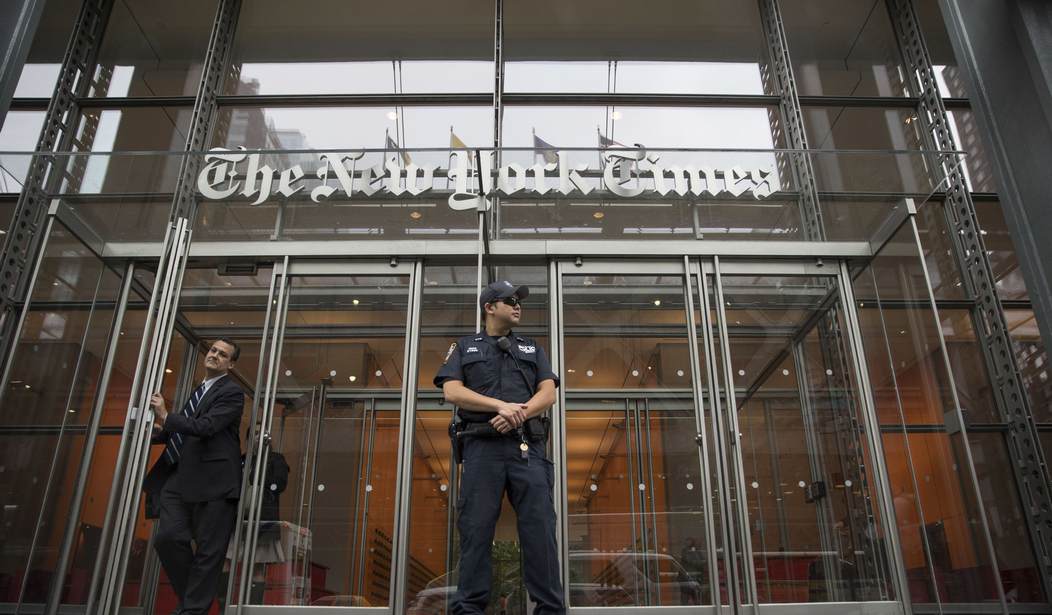The New York Times recently hired as a writer and board member Sarah Jeong. The Times knew that in recent years Jeong had posted a series of unapologetically racist anti-white tweets. She had offered wisdom such as #CancelWhitePeople" and expressed hatred for males.
Yet when the Times discovered less graphic versions of such tweets from newly hired technology writer Quinn Norton earlier this year, the newspaper immediately fired Norton.
The message of disparate treatment was that what bothers the New York Times is not racism per se, but who is the racist and who are her targets.
Over at The Atlantic, there are also no ostensible rules concerning who is and is not fired, and for what reason. Essayist Kevin Williamson was allegedly dropped by Atlantic for his prior incendiary suggestion that abortion might warrant the death penalty.
Fine, it is a free country, and private companies can fire whomever they chose. But the Atlantic had no problem hiring writer Julia Ioffe. She been let go at Politico for tweeting that President Trump might have engaged in incest with his daughter Ivanka.
Again, the impression conveyed is that the Atlantic is not so concerned with inflammatory speech as with calibrating at whom the venom is directed. If Ioffe had tweeted the same perversities about Barack Obama and his daughters, The Atlantic surely would have fired her immediately.
The American people are losing confidence in special counsel Robert Mueller's investigation not just because after 15 months, he has not charged anyone with Russian collusion -- the original reason he was appointed. Instead, the pushback is due to the growing sense that rules are made up ad hoc.
Recommended
Mueller is investigating suspects for lying to federal officials, improperly lobbying foreign interests, obstructing justice and violating federal statutes. Yet his team only seems concerned with those crimes to the degree that Donald Trump might be implicated. Otherwise, Mueller appears to have little interest in violations by FBI or Department of Justice officials who likely violated the law out of their worry over, or hatred for, Trump.
We know that members of the FBI and DOJ misled the Foreign Intelligence Surveillance Court by deliberating hiding critical facts about the Steele dossier.
We know that John Brennan, James Clapper and James Comey all gave false or misleading testimony to Congress.
No doubt former Trump associate Paul Manafort deserves the scrutiny of the Mueller investigation. But he was in the same questionable business as his liberal counterpart, Tony Podesta (brother of Hillary Clinton campaign adviser John Podesta). Both wheeler-dealers have been mentioned in media reports of Russian collusion and have a long history of leveraging their political contacts for foreign cash. But only one so far has been indicted (and not for collusion).
Mueller has searched in vain for obstruction of justice. But we know Hillary Clinton aides Cheryl Mills and Huma Abedin deliberately misled FBI officials about Clinton's illicit email server, as did former Deputy FBI Director Andrew McCabe.
If Mueller can't find evidence of any Trump collusion with a foreign nation, perhaps he might find such collaboration right under his nose.
Hillary Clinton and her campaign team paid for research done by a British citizen, Christopher Steele, working for Fusion GPS, to smear Trump. Steele claims that he enlisted Russian sources to gather gossip on Trump in an attempt to sway the 2016 election. Members of the FBI, CIA and DOJ improperly helped to ensure that Steele's unverified accusations and innuendos were conveyed to the media.
Again, the impression is that likely foreign collusion involving Clinton's campaign is not worth investigating in the same manner that Mueller is investigating Trump.
This same sort of asymmetry also applies to social media. Facebook, YouTube and Apple claim that they wish to cleanse their platforms of hate speech and have removed Alex Jones' Infowars channels.
But so far, they have shown no interest in doing the same with a number of radical left-wing extremist sites, such as antifa's, or with those of the Rev. Louis Farrakhan. The impression again is that the acceptance of hate speech depends on who is hating whom. The social media exemption given to the racist rants of Sarah Jeong illustrated that well enough.
In these polarized times, Americans are not so much angry that newspapers and magazines fire reporters, or that Robert Mueller indicts those under suspicion. What bothers them is that our guardians of morality do not offer any principles to explain why some people's lives are harmed or destroyed, and others' lives are not.
When there is no blind code of justice, people suspect that our institutions define wrong behavior and bad words as those in service to the wrong political agenda.
And they are right.

























Join the conversation as a VIP Member